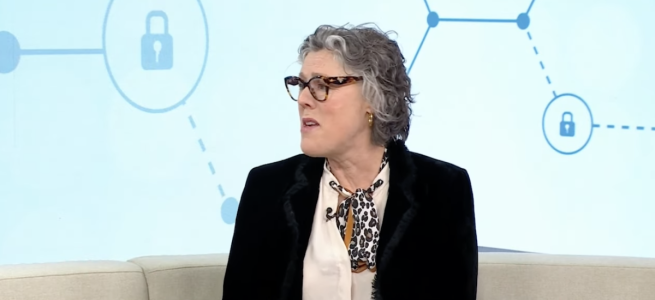95-year-old grandmother loses $1.6 million savings: ‘I felt duped, foolish, ashamed’
By
Seia Ibanez
- Replies 28
In a world where technology has become a cornerstone of our daily lives, it's heartbreaking to hear stories of those who fall victim to the darker side of the digital age.
The tale of a 95-year-old Sydney great-grandmother, who lost her entire life savings of $1.6 million to scammers, is a stark reminder of the vulnerability we all face in the face of sophisticated cybercrime.
Harriet Spring, the daughter handling her elderly mother's finances, shared her harrowing experience, revealing how a scammer, posing as a bank employee, meticulously built trust over several months.
‘Obviously, my world just fell out from under me—I just felt sick,’ she said.

This scammer, who introduced himself as ‘George Thompson’ from ING Bank, contacted Harriet while managing the sale of her mother's house.
Over time, he convinced her to transfer the proceeds into what she believed was a high-interest ING account, but in reality, the funds were being diverted to a Westpac Bank account controlled by the fraudsters.
‘It sounds implausible now, but the scammer had me convinced, and I told my mother's bank, Teachers Mutual Bank, that this was an ING fixed term deposit, but it was being put in the Westpac bank,’ she said.
‘I put down the BSB number and the account number, and what I thought was my name attached to the account (my mother's bank) pointed out that it seemed strange and ING account would be held with Westpac, but they still went ahead and authorised the transfer.’
Harriet's emotional recount of the event highlighted the profound impact of such scams, not only financially but also psychologically.
‘I felt utterly responsible, I felt duped, foolish, ashamed—a lot of shame associated with it and I think that's why a lot of people don't come forward and talk about this kind of thing,’ Harriet said.
Harriet's story is not just a cautionary tale but a call to action.
She urged others to be vigilant and advocated for banks to take greater responsibility in safeguarding their customers against such deceit.
‘Someone with basic training from the bank would have known that ING doesn't bank with any other banks, and they should have flagged it,’ Harriet said.
‘I believe the reality is that the banks 100 per cent put the blame on the victims, and they minimise their own liability.’
‘There should be some sort of system for compensating victims, the banks don't commit the theft, but they certainly drive the getaway car and they need to be held responsible for being complicit with this.’
You can watch TODAY’s video below:
Credit: TODAY / YouTube
This comes after a 19-year-old nursing student lost over $4,000 due to a sophisticated scam on a fashion marketplace app after attempting to sell her preloved clothes.
The incident serves as a reminder and wake-up call for all Australians to be vigilant and sceptical and always double-check the legitimacy of online transactions and communication to avoid falling victim to similar scams. You can read more about the story here.
 Have you experienced a similar scam? Let us know in the comments below.
Have you experienced a similar scam? Let us know in the comments below.
The tale of a 95-year-old Sydney great-grandmother, who lost her entire life savings of $1.6 million to scammers, is a stark reminder of the vulnerability we all face in the face of sophisticated cybercrime.
Harriet Spring, the daughter handling her elderly mother's finances, shared her harrowing experience, revealing how a scammer, posing as a bank employee, meticulously built trust over several months.
‘Obviously, my world just fell out from under me—I just felt sick,’ she said.

Harriet Spring shared her harrowing experience after a scammer built her trust over several months. Credit: TODAY / YouTube
This scammer, who introduced himself as ‘George Thompson’ from ING Bank, contacted Harriet while managing the sale of her mother's house.
Over time, he convinced her to transfer the proceeds into what she believed was a high-interest ING account, but in reality, the funds were being diverted to a Westpac Bank account controlled by the fraudsters.
‘It sounds implausible now, but the scammer had me convinced, and I told my mother's bank, Teachers Mutual Bank, that this was an ING fixed term deposit, but it was being put in the Westpac bank,’ she said.
‘I put down the BSB number and the account number, and what I thought was my name attached to the account (my mother's bank) pointed out that it seemed strange and ING account would be held with Westpac, but they still went ahead and authorised the transfer.’
Harriet's emotional recount of the event highlighted the profound impact of such scams, not only financially but also psychologically.
‘I felt utterly responsible, I felt duped, foolish, ashamed—a lot of shame associated with it and I think that's why a lot of people don't come forward and talk about this kind of thing,’ Harriet said.
Harriet's story is not just a cautionary tale but a call to action.
She urged others to be vigilant and advocated for banks to take greater responsibility in safeguarding their customers against such deceit.
‘Someone with basic training from the bank would have known that ING doesn't bank with any other banks, and they should have flagged it,’ Harriet said.
‘I believe the reality is that the banks 100 per cent put the blame on the victims, and they minimise their own liability.’
‘There should be some sort of system for compensating victims, the banks don't commit the theft, but they certainly drive the getaway car and they need to be held responsible for being complicit with this.’
You can watch TODAY’s video below:
Credit: TODAY / YouTube
This comes after a 19-year-old nursing student lost over $4,000 due to a sophisticated scam on a fashion marketplace app after attempting to sell her preloved clothes.
The incident serves as a reminder and wake-up call for all Australians to be vigilant and sceptical and always double-check the legitimacy of online transactions and communication to avoid falling victim to similar scams. You can read more about the story here.
Key Takeaways
- A 95-year-old Sydney great-grandmother was scammed out of $1.6 million by individuals posing as bank officials.
- Harriet Spring, the victim's daughter, was led to believe it was a legitimate interaction with her mother's bank and felt deeply ashamed and responsible after realising the scam.
- The scammer convinced Harriet to transfer her mother's funds to an account that he claimed was associated with ING Bank but was actually held at Westpac Bank.
- Harriet is calling for banks to take more responsibility in preventing such fraud and suggests there should be a system for victim compensation, criticising banks for blaming victims and minimising their own liability.







